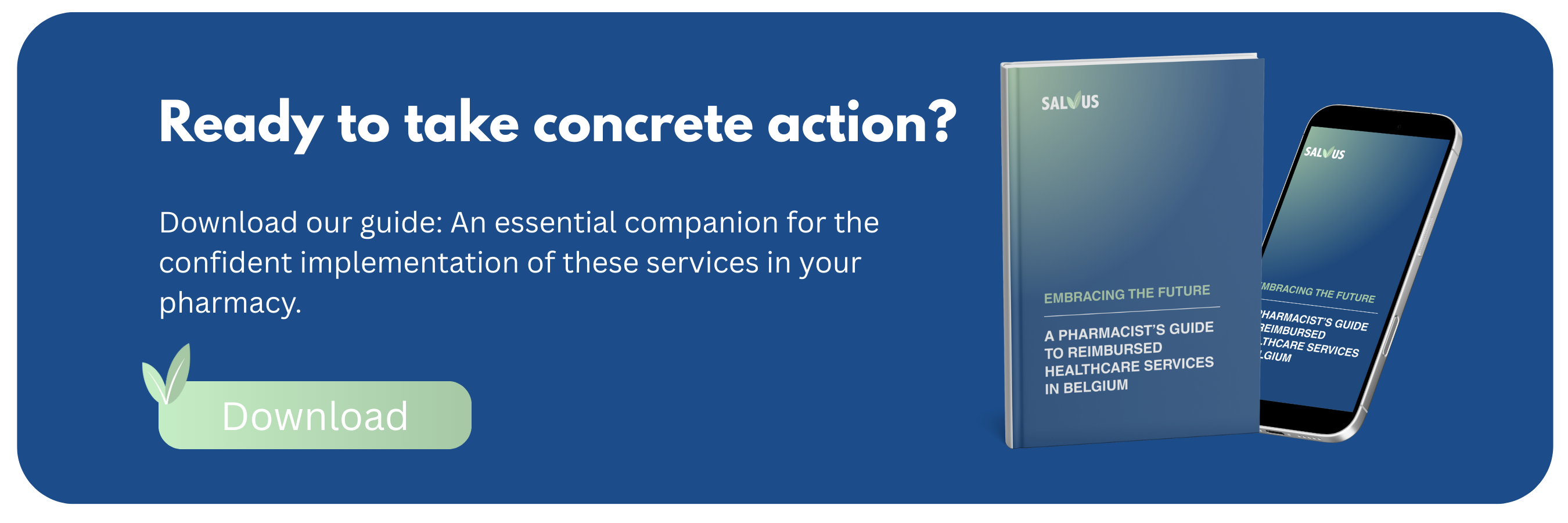Thanks to constant advances made in the healthcare field, we can benefit nowadays not only from a longer life expectancy, but also from a better awareness regarding our own health. Ironically, this broader awareness brings even more health problems to light.
The challenge we now face is that the number of healthcare providers is not keeping pace with the growing demand, creating an urgent need for effective solutions to bridge the widening gap between healthcare supply and demand.
An interesting hypothesis suggests that retail outlets could offer a promising solution to relieve healthcare providers and make the health services more accessible.
By seamlessly integrating technology into places alternative to traditional medical institutions, some procedures could be relocated outside of hospitals.
The goal is to support the consumers in a faster, more accessible and more effective way, all by sharing equally the responsibility of the health system.
In order to evaluate the disposition of patients to visit retail outlets for health problems, a Deloitte team directed a study with 16,000 respondents spread over 15 European countries.
Even if the whole report can be found on the internet, you will find below the summary of the principal learnings to get from it:
What is frustrating for the patients in the current system (= an opportunity)
Waiting times are the most frequent source of frustration for patients in the current health system.
On the one hand, they are faced with huge delays to get an appointment, and on the other hand, the offer for flexible options enabling the integration of the said appointment into their own private agenda stays limited.
The growing pressure put on the health system is an indication of the problems that will not be solved right away.
For retail outlets, this represents a considerable opportunity. They are indeed well positioned to answer to the ever-growing needs for more accessible and efficient healthcare services.
These places could become alternative suppliers of healthcare, where the patients are treated faster, without having to wait for long hours, which is generally associated with classical medical facilities.
By integrating technology to on-site healthcare services, the planification of appointments becomes easier and more flexible, adapting itself to the patient’s lifestyle.
Furthermore, these places offer a less intimidating environment, reducing the psychological barriers when seeking treatment.
What the patients do not want to give up on
The study shows that the patients are also not ready to reach a compromise on hygiene, and give great importance to the qualifications and empathy of healthcare providers.
It highlights the value of a clean environment, as well as competent and benevolent professionals to meet the patients’ needs.
What is the pharmacy's position?
The study reveals that a vast majority of the respondents react positively to some interventions made in a pharmacy. Pharmacies are already enjoying a good well-established reputation thanks to their health specialization and the presence of qualified pharmacists.
Even though they function with a retail model, they differentiate themselves with their reassuring and hygienic atmosphere, more aimed towards healthcare than sales.
Nowadays, pharmacies have the opportunity to broaden their concept of retail outlets by integrating some health services into it. Without it, they risk falling behind other retail actors who themselves evolve towards a healthcare-provider role.
Nowadays, pharmacies have the opportunity to broaden their concept of retail outlets by integrating some health services into it.
Without it, they risk falling behind other retail actors who themselves evolve towards a healthcare-provider role.
For pharmacists, it implies surpassing their purely transactional role to actively leverage their knowledge related to healthcare by offering diverse services:
- treating smaller pains,
- administering vaccines,
- routine check-ups like:
- flu vaccines,
- blood tension measurements,
- cholesterol assessments
All in order to promote a more proactive approach to healthcare.
What are the advantages for retailers?
Retailers can take big benefits out of this by relying more on consumers’ engagement and loyalty, especially when focusing on the improvement of their health, whether it is online or in shops.
We find ourselves in an era when retailers’ rentability evolves from the products margins to other forms of monetization, so the understanding of the client’s behavior as well as of the healthcare system’s changes is becoming crucial.
The fact that major technological players are coming into the picture of healthcare reinforces this reality depicted above.
The most concrete proof that this model could unfold faster than planned would be the recent acquisition of the Officinales pharmacies by the Colruyt group…
The Future of retail is Health!
